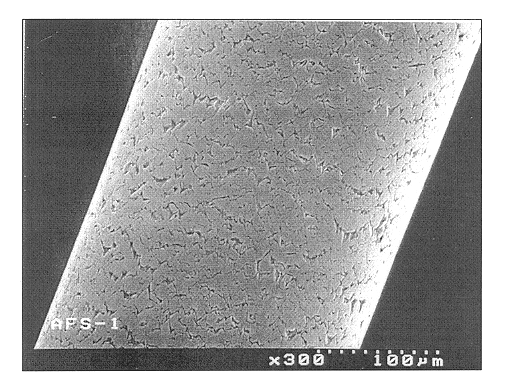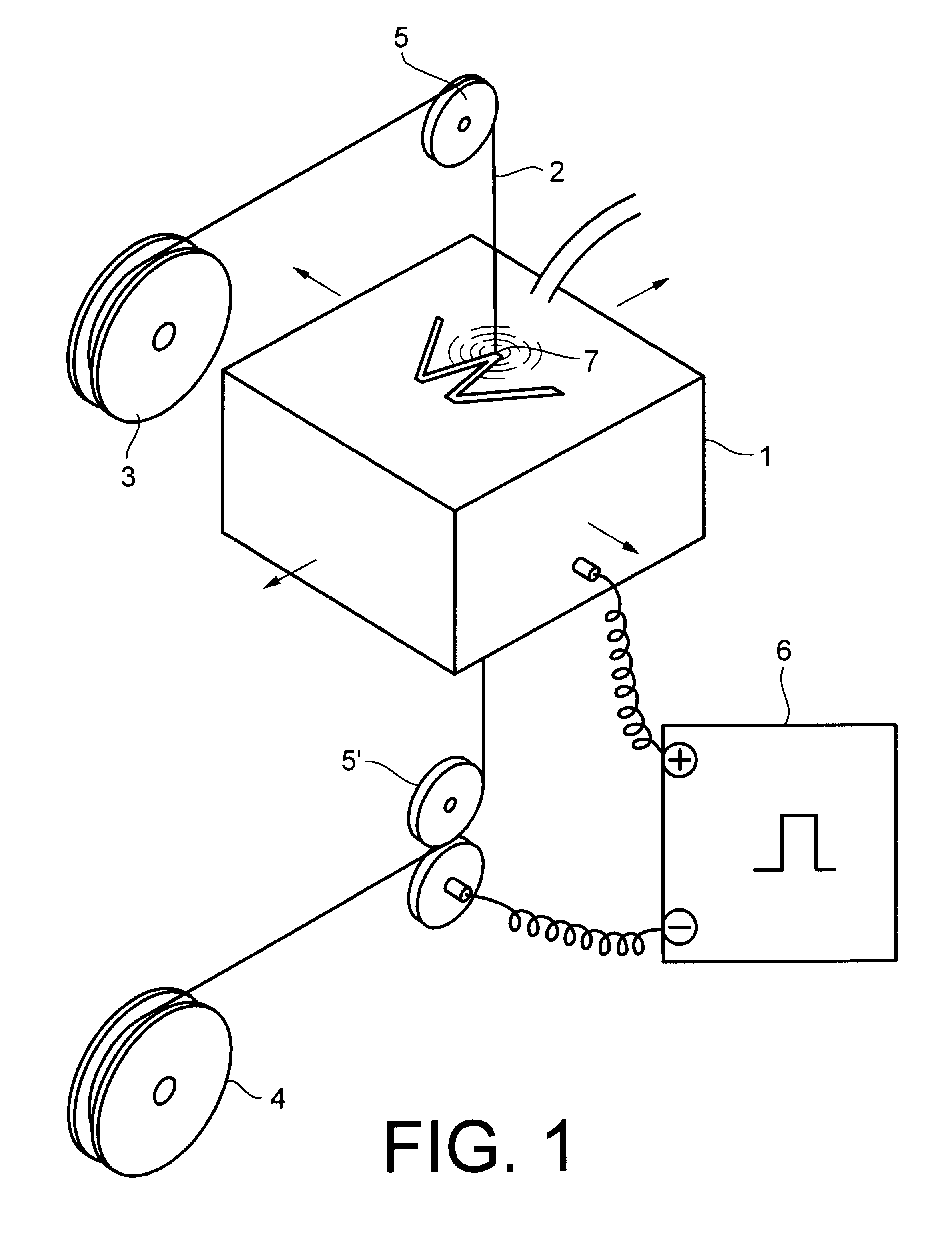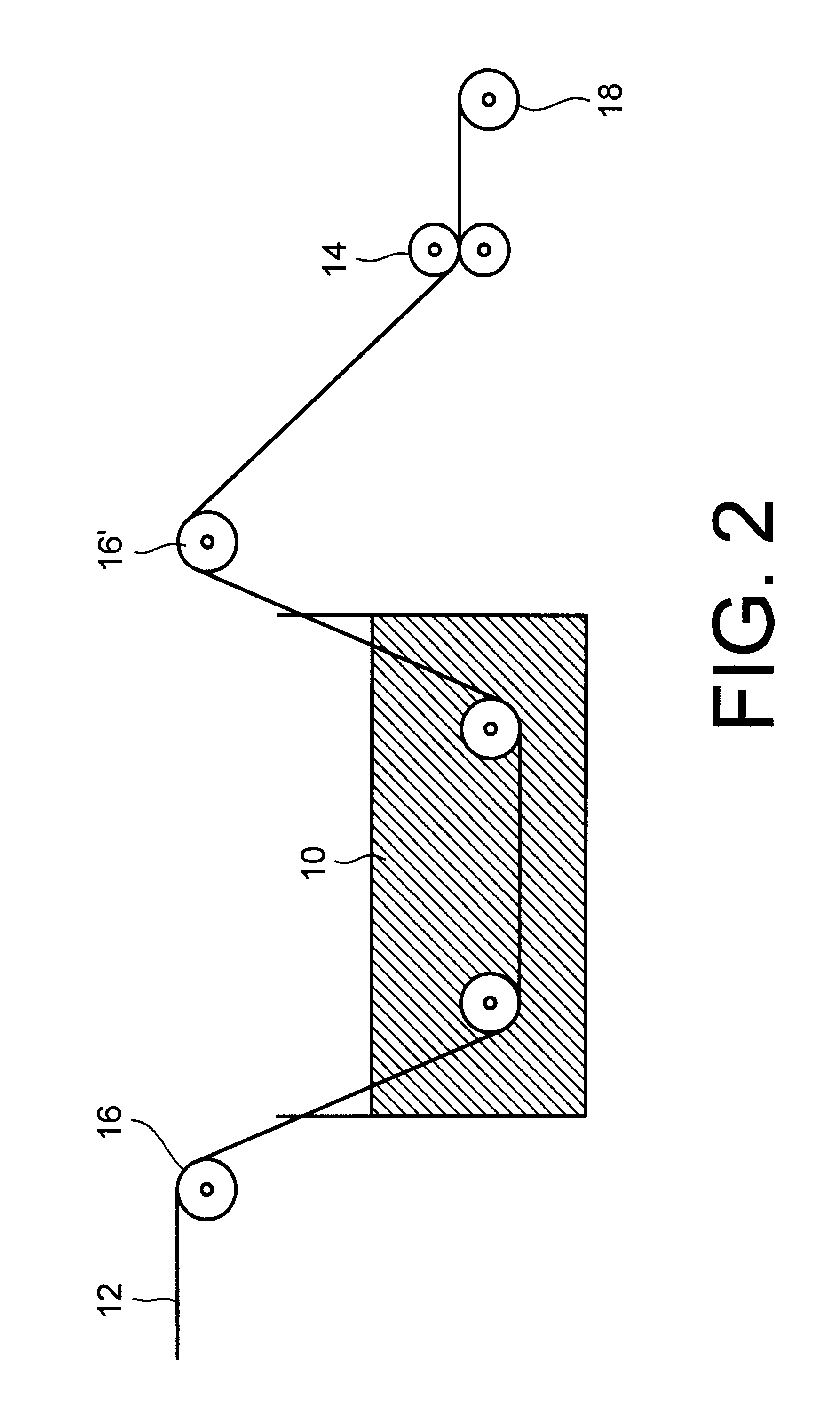Method of manufacturing porous electrode wire for electric discharge machining and structure of the electrode wire
a technology of porous electrode wire and electric discharge, which is applied in the field of electromechanical processing of porous electrode wire and the structure of electrode wire, can solve the problems of low mechanical strength, many deficiencies, and inferior machining accuracy and tendancy of wire breakage,
- Summary
- Abstract
- Description
- Claims
- Application Information
AI Technical Summary
Benefits of technology
Problems solved by technology
Method used
Image
Examples
Embodiment Construction
1
A brass wire having 63-67 wt % copper and 33-37 wt % zinc is prepared as a core wire of an intermediate diameter. Hot dip galvanizing is practiced on the core wire to form a coating layer. The hot dip galvanizing may use zinc, aluminium, tin or their alloys and particularly, zinc is preferred. According to a conventional hot dip galvanizing process, the core wire undergoes pre-treatment of alkali degrease and acid cleaning. Then, it passes ammonium chloride flux bath. Subsequently, the core wire passes a molten bath of zinc. At this time, the temperature of the bath is maintained 400-500.degree. C. and the core wire is coated for about 1-10 seconds to form a zinc coating layer and a copper-zinc alloy layer. The alloy layer is formed by a diffusion reaction between the core and the zinc and the coating layer of zinc is formed thereon. Further the alloy layer is the hardest layer among others and has lower elongation than the core.
Thus, an copper-zinc alloy layer of 1-2 .mu.m and a z...
PUM
| Property | Measurement | Unit |
|---|---|---|
| thickness | aaaaa | aaaaa |
| diameter | aaaaa | aaaaa |
| temperature | aaaaa | aaaaa |
Abstract
Description
Claims
Application Information
 Login to View More
Login to View More - R&D
- Intellectual Property
- Life Sciences
- Materials
- Tech Scout
- Unparalleled Data Quality
- Higher Quality Content
- 60% Fewer Hallucinations
Browse by: Latest US Patents, China's latest patents, Technical Efficacy Thesaurus, Application Domain, Technology Topic, Popular Technical Reports.
© 2025 PatSnap. All rights reserved.Legal|Privacy policy|Modern Slavery Act Transparency Statement|Sitemap|About US| Contact US: help@patsnap.com



